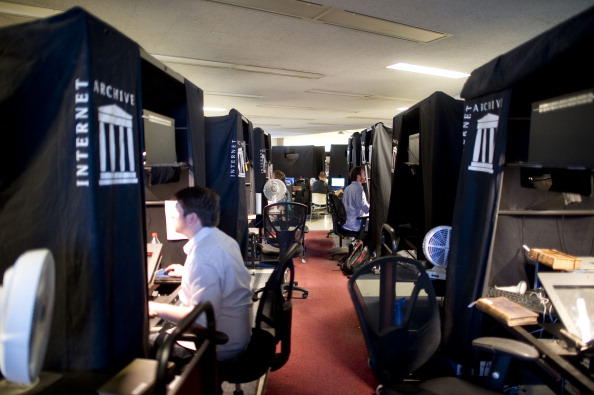Across the world, countries like Australia are starting to develop harsher laws targeting online platforms for issues ranging from hate to misinformation and beyond. The downside of those laws is becoming clear, though, as some sites say they’re being falsely reported.
Archive.org — a nonprofit that was founded to build an Internet library — saves digital information like old webpages and more. In a blog post, the organization shared that they received over 550 takedown notifications from the European Union.
The organization wrote:
“In the past week, the Internet Archive has received a series of email notices from French Internet Referral Unit (French IRU) falsely identifying hundreds of URLs on archive.org as ‘terrorist propaganda’…It would be bad enough if the mistaken URLs in these examples were for a set of relatively obscure items on our site, but the French IRU’s lists include some of the most visited pages on archive.org and materials that obviously have high scholarly and research value. “
Some of the falsely identified URLs include major collection pages — such as https://archive.org/details/texts — which all contain millions of items. Links to scholarly articles and U.S. government reports were also singled out, including television footage from CSPAN.
Right now, the European Union is drafting laws that would have allowed Archive.org to be hit with penalties if the content wasn’t removed in an hour. The organization points out how it’s impossible to process that number of reports when they use human review.
This isn’t a new issue in Europe. The United Kingdom, for example, has a Counter-Terrorism Internet Unit that’s sent out more than a quarter of a million takedown requests.
The issue with these laws is that they can be really vague. What defines “terroristic content” changes depending on the government and the situation. It’s also important to note that “terrorism” is not a neutral word. Within many countries, for example, terrorism is associated with marginalized groups like Muslims.
“The fact that the police are not always accurate and are not required to get their work checked by an independent authority means that these processes are especially fragile,” Jim Killock, executive director of the Open Rights Group, told The Verge. “We should not accept changes to the law pushing platforms to act as the police and judicial authorities, and empowering the police to work without oversight.”

